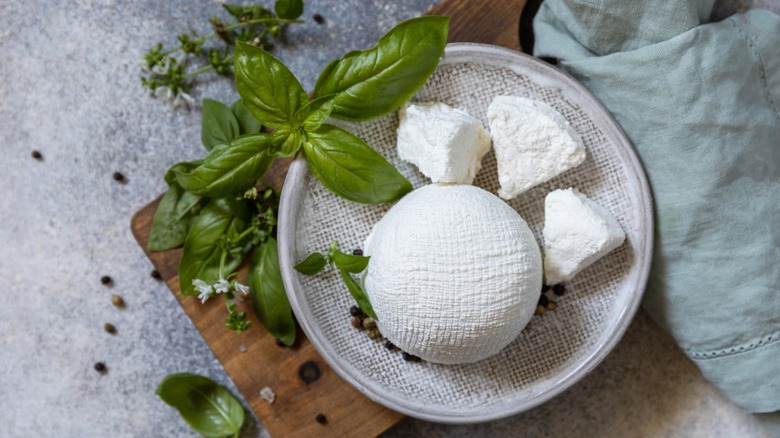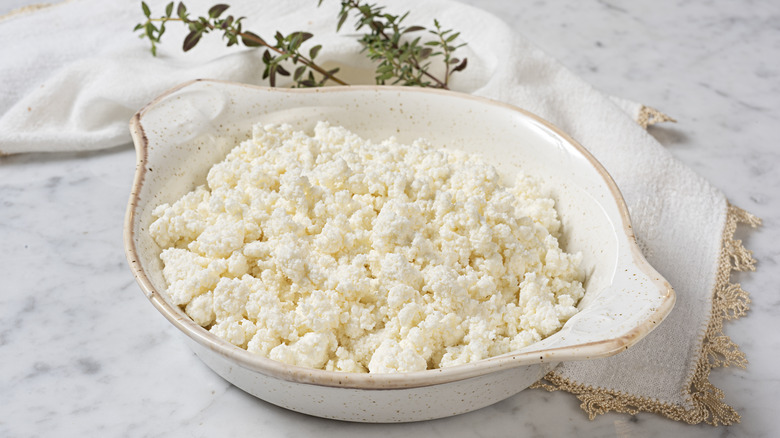The Best Way To Freeze Ricotta Cheese For Later Use
Like many people, we're completely obsessed with ricotta's sheer versatility. It can turn into the silkiest pasta sauce, it thickens smoothies perfectly, and it makes for a delicious batch of bright and fluffy lemon ricotta pancakes. Since the cheese is good for practically everything, we love to stockpile it. Whether you're trying to store some homemade ricotta cheese or need a place to keep the store-bought version, it's important to know the right way to do so.
For a small batch, you can store ricotta cheese in the fridge for around one or two weeks. If it's not something you use frequently or you have a larger amount, it's best to keep it in the freezer.
Before freezing, you'll need to mix the ricotta to rid it of lumps, which will help the cheese to harden evenly. Place it in a clean container then press it down with paper towels so the liquid can drain as much as possible. Afterward, you can move the ricotta to an airtight, freezer-safe container or plastic bag. Make sure to date it with when you stored it, as the cheese will last for up to three months.
If you're only going to be using a little at a time, place the cheese into an ice cube tray and freeze it. When using it, only take the amount of cubes you'll use and thaw it, since repeated thawing will break down the cheese.
How should you thaw ricotta cheese?
To thaw ricotta, place it in the fridge for up to six hours until it softens. If you can, avoid leaving the cheese in the fridge for longer since the texture will break down. Don't thaw ricotta in a room temperature environment; doing so makes it susceptible to bacteria growth.
Most people don't recommend freezing cheese due to the decrease in quality. When it thaws, it'll take on a grainy, lumpy texture that isn't as appealing. Once thawed, stir the cheese to smooth it out and keep it in the refrigerator, where it will last for three days. Due to the texture change, it's best to use it in recipes where it'll be cooked, like mixed mushroom lasagna.
While ricotta that's still good will turn grainy when thawed, there will be liquid if the cheese has spoiled. The smell will also change from something neutral to a sour, pungent odor. It may also change color, darkening from smooth white to a yellow or brown tinge. The most notable sign of spoilage will be spots of mold.

